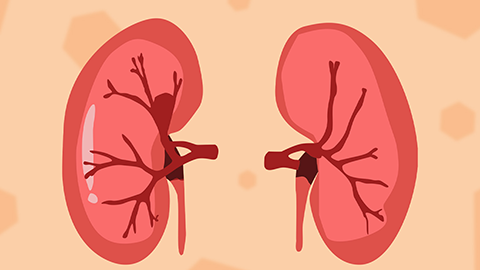What Foods Should Not Be Eaten with Nephritis?
Generally speaking, patients with nephritis do not have foods that are absolutely prohibited, but it is not recommended to consume pickled vegetables, fatty meats, animal offal, high-potassium bananas, preserved pork, and similar foods. Detailed explanations are as follows:
1. Pickled Vegetables
Pickled vegetables are high in salt, as large amounts of table salt are added during the pickling process. Patients with nephritis often have impaired kidney excretion function. Consuming excessive salt can easily lead to water and sodium retention in the body, which may cause or worsen edema, increase the risk of elevated blood pressure, and be detrimental to disease control. Therefore, they are not recommended.
2. Fatty Meats
Fatty meats contain large amounts of saturated fat. Consuming these fats can easily elevate blood lipid levels. Abnormal blood lipids increase the burden on renal blood vessels and impair blood supply to the kidneys, potentially accelerating the progression of kidney damage and hindering the recovery from nephritis. Therefore, it is best to avoid them.

3. Animal Offal
Patients with nephritis are also not advised to eat animal offal because these foods contain high levels of purines and protein. Uric acid, a byproduct of purine metabolism, must be excreted through the kidneys. Excessive uric acid increases the metabolic burden on the kidneys. Excessive protein intake also increases filtration pressure on the kidneys, which is detrimental to disease control.
4. High-Potassium Bananas
This refers specifically to unripe or bananas with high potassium content. Patients with nephritis have reduced kidney capacity to excrete potassium. Consuming excessive potassium can lead to hyperkalemia, potentially causing severe complications such as arrhythmia and endangering health. Therefore, consumption should be cautious, especially avoiding them when blood potassium levels are elevated.
5. Preserved Pork (Cured Pork)
Preserved pork is a high-salt and high-fat food. Not only does it contain high levels of salt, which can lead to water and sodium retention, but it also contains significant fat content, which increases the burden on the kidneys and cardiovascular system. Additionally, harmful substances may be produced during the curing process, further damaging kidney function and impairing disease stability. Therefore, it is not recommended.
Additionally, nephritis patients should also avoid eating nuts and high-potassium vegetables as much as possible. Furthermore, in daily life, patients should maintain regular作息 (作息 translates as作息 patterns), avoid excessive fatigue, and regularly monitor kidney function and electrolyte levels.










